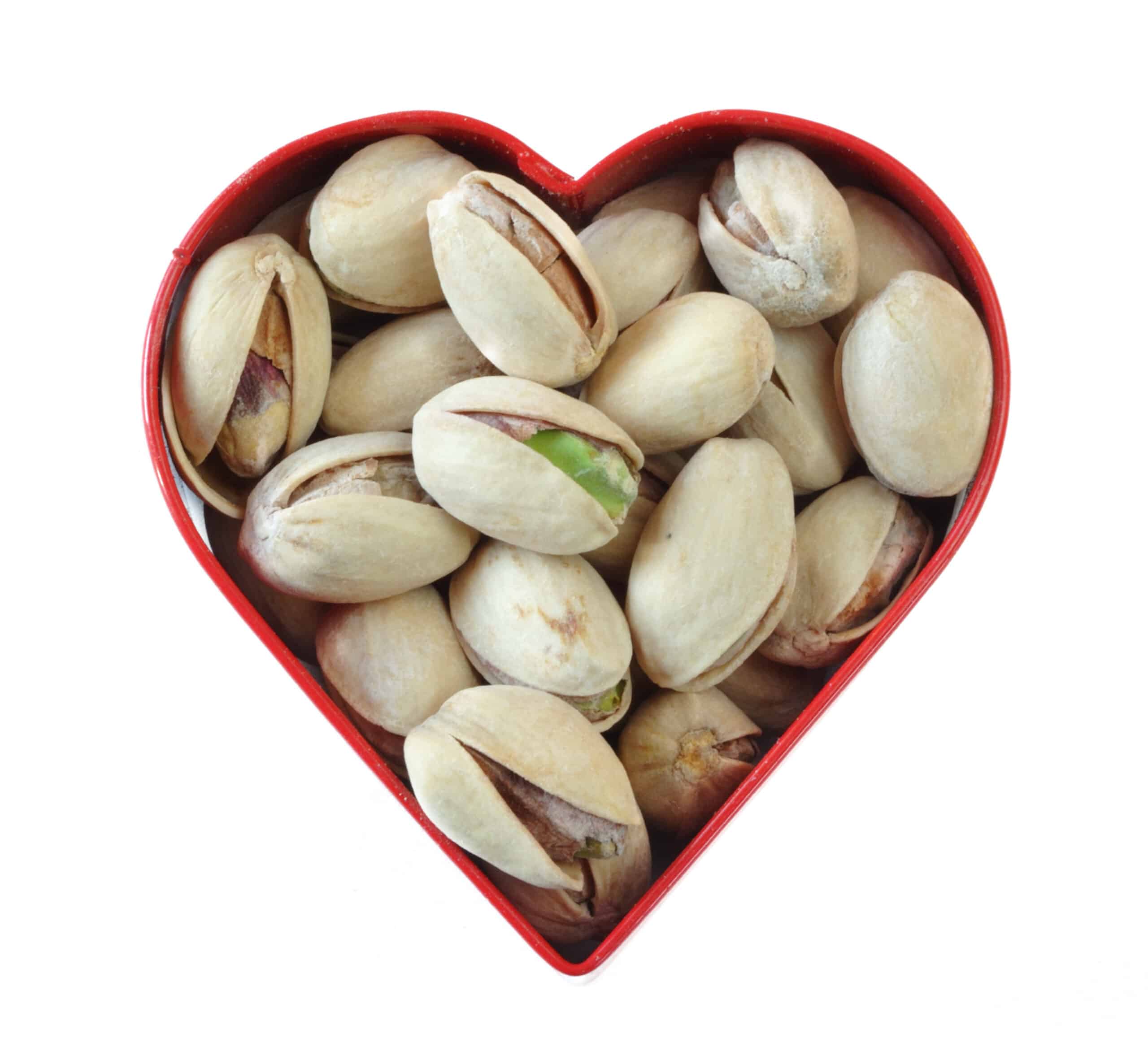According to the USDA, 100 grams of pistachios contains 571 calories, 21.43 grams of protein, 46.43 grams of total lipid fat, 28.57 grams of carbs, 10.7 grams of total dietary fibre, 7.14 grams of sugars, 21 mg of calcium, 3.86 mg of iron, 428 mg of sodium, 4.3 mg of vitamin C, 357 IU of vitamin A, 5.36 grams of saturated fatty acids, zero grams of trans fatty acids, and zero mg of cholesterol.
“Pistachios are nutrition powerhouses loaded with antioxidants that help to minimize free radical and combat oxidative stress in the body,” says Maya Feller, M.S., R.D., C.D.N. “They also contain an incredible amount of vitamin B6, whose properties support healthy brain development and immune and nervous system functions.”
“A pistachio is a pretty cool nut,” says Becci Twombley, R.D., C.S.S.D. “It has every essential nutrient, except for vitamin C. Pistachios are high in omega-three fatty acids and they have three different types of antioxidants. They also have protein, healthy fats, good carbohydrates, fiber, and vitamin A. The amount of nutrition that’s contained in just one pistachio is really impressive.”
One serving of pistachios is the equivalent of about one ounce or 28 grams or around 49 nuts. That may sound like a lot, but without their shells, they are pretty tiny. Just one serving can provide 6 grams of plant-based protein which will help to fuel the body with essential amino acids. Pistachios are one of the top high protein snack nuts which makes them a great choice for those looking to add more plant-based choice to their diet as part of a well-balanced eating pattern.
That same serving also contains 3 grams of fibre which will help to promote stable blood glucose levels and digestive regularity. The fibre content will help you to feel full for longer so you will be less likely to eat something less nutritious, and the nuts act as a prebiotic to provide nutrients for the good bacteria that reside in our gut microbiome that is key to overall health.
Studies show that eating pistachios every day can be beneficial to cardiovascular health and help to decrease the associated disease risk factors. Close to 90% of the fats in them are in the more healthy mono and polyunsaturated category which have been shown to help decrease LDL cholesterol levels.
Research also suggests that pistachios may help to support blood flow and blood pressure. Some athletes eat an ounce before warming up to help improve blood flow before playing to promote better oxygenation and better endurance as well as helping with recovery afterwards, says Twombley who is a sports dietitian.
The high polyphenol content of pistachios may also help to fight and lower levels of inflammation. Inflammation is at the root of just about every disease, especially in heart disease which is measured by the amount of interleukin six within the blood, and studies show that there is a direct relationship between polyphenol intake to decrease that heart risk.
Raw pistachios are minimally processed. Nature cracks the shells open a little on the tree, where they can be collected and sent to a drying facility to be roasted, and during this process, no human hands touch them. You can get them shelled or have a little fun and remove the shells yourself. Another perk to doing the shelling yourself is that it slows down how fast you eat. You can get them raw, roasted, shelled, or flavoured, but check for the sodium level to make sure they are on the lower end being under 5% of the daily recommended value. Those watching sugar may want to avoid the sweeter ones such as honey roasted options.
Pistachios are fairly versatile, you can enjoy them on their own, thrown into a salad, mixed in with rice or quinoa, as a dessert, in a smoothie, mixed into a granola mix, blended into nut butter, or even crushed and incorporated into a breading or muffin mix to increase the nutrient density.




